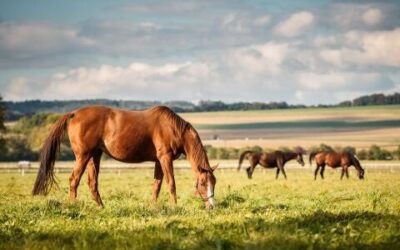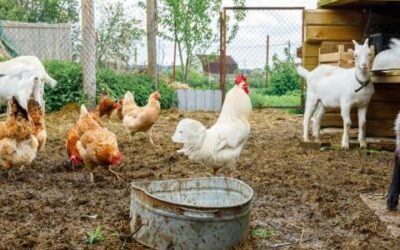One of the questions fielded by equine nutritionist Dr. Clair Thunes in her April Q & A with The Horse concerned testing for mineral or vitamin levels. The question was a simple one that spoke to a general interest on the part of horse owners: Should you test?
 Testing for mineral levels is tricky business. Myriad factors can affect data received from a blood draw. Absorption can vary widely for individual horses; growing, lactating and other factors can mean results are taken out of context; even the differences in labs can affect whether testing provides useful information. However, there are some levels worth testing, Thunes said. Her response to the question? “Test for E,” she said. “That’s an important one.” It’s common to see low Vitamin E in horses, and the repercussions for muscling and other diseases are critical to a horse’s long-term health.
Testing for mineral levels is tricky business. Myriad factors can affect data received from a blood draw. Absorption can vary widely for individual horses; growing, lactating and other factors can mean results are taken out of context; even the differences in labs can affect whether testing provides useful information. However, there are some levels worth testing, Thunes said. Her response to the question? “Test for E,” she said. “That’s an important one.” It’s common to see low Vitamin E in horses, and the repercussions for muscling and other diseases are critical to a horse’s long-term health.
Low Vitamin E – Common for Today’s Horse Population
Horses that graze naturally on fresh pasture get the best source of natural vitamin E. Present in green pasture, vitamin E degrades as soon as the pasture is harvested. Under normal grazing conditions, vitamin E is stored in the liver and body tissue and the horse can access it throughout the year when fresh hay is unavailable. When the feeding environment diverts from natural cycle of consistent, extended grazing, horses must rely on us to supply them with optimum levels that nature can’t or they will risk deficiency.
Making sure we answer that call is important because vitamin E is an essential nutrient for the horse’s health. Vitamin E provides cell protection from oxidative damage, and without this protection, the muscle, nerves, and immunity can suffer. Vitamin E deficiency can often present as muscle soreness or slow recovery, but more often deficiencies go unrecognized, manifesting as undiagnosed immune issues or reproductive problems, for example.
Over time, deficiency can result in Equine Motor Neuron Disease, a degenerative disease of the motor neurons in the spinal column and brain stem. Equine Degenerative Myeloencephalopathy, caused by damage to the nerves in the spinal cord, can be the result of a vitamin E deficiency, as can White Muscle Disease, a degenerative disease caused by deficiency in vitamin E or selenium. “Tying up” or Sporadic Extertional Rhabdomyolysis, which manifests as severe cramping and stiffness, is another condition that can be caused by vitamin E deficiencies.
Toward Sufficient Vitamin E
When it comes to balanced nutrition that provides enough vitamin E, “Start with the diet,” said Thunes. Green pasture is the best source, followed by feed with natural sources of vitamin E. When horses rely on mostly or solely on hay, owners will want to explore supplements, balancer rations, and fortified feeds, and those who are unsure should consider testing. Optimum ranges will always depend on the individual horse. That includes the horse’s workload, the existence of allergies or other health issues, and individual rates of absorption, and whether the horse is an athlete, a growing foal, or a pregnant mare, among other factors. As a result, ranges can vary from 500 IUs to 5000 IU per day. For feeds, check for amounts of 100-150 IU per pound, adequate for light workers.
More information about Vitamin E in the Equine Diet:
Those researching vitamin E supplements will find it comes in natural and synthetic forms (often listed on feed as dl-alpha-tocophero, whereas natural vitamin E is listed as d-alpha-tocophero without the “L”). Natural vitamin E is absorbed more effectively than its synthetic form, and is it is retained in the tissue approximately twice as long. As expected, the natural form is more expensive, but its efficient delivery can mean the need for less. Those exploring supplementation can consider a baseline blood test to evaluate the horse’s improvement and effectiveness of the supplementation.
The Bottom Line on Vitamin E
Unless the foundation of your horse’s diet is based on natural grazing on green pasture, you will benefit from evaluating the vitamin and mineral content of the horse’s current diet, testing via blood sample, and considering vitamin E supplementation. Owners should always take the health, stage of life and workload of the individual horse into account and consult their veterinarian or equine nutritionist about how to move forward when proper vitamin and minerals in the diet is a concern.




